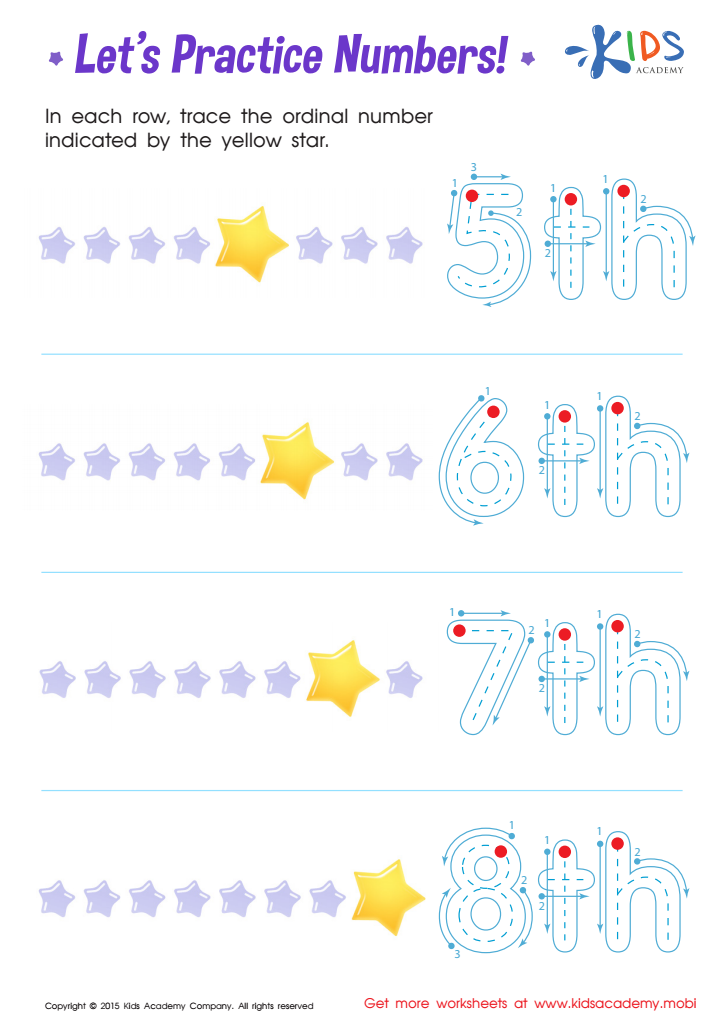Tracing Numbers Worksheets Activities With Answers for Ages 4-6
32 filtered results
-
From - To
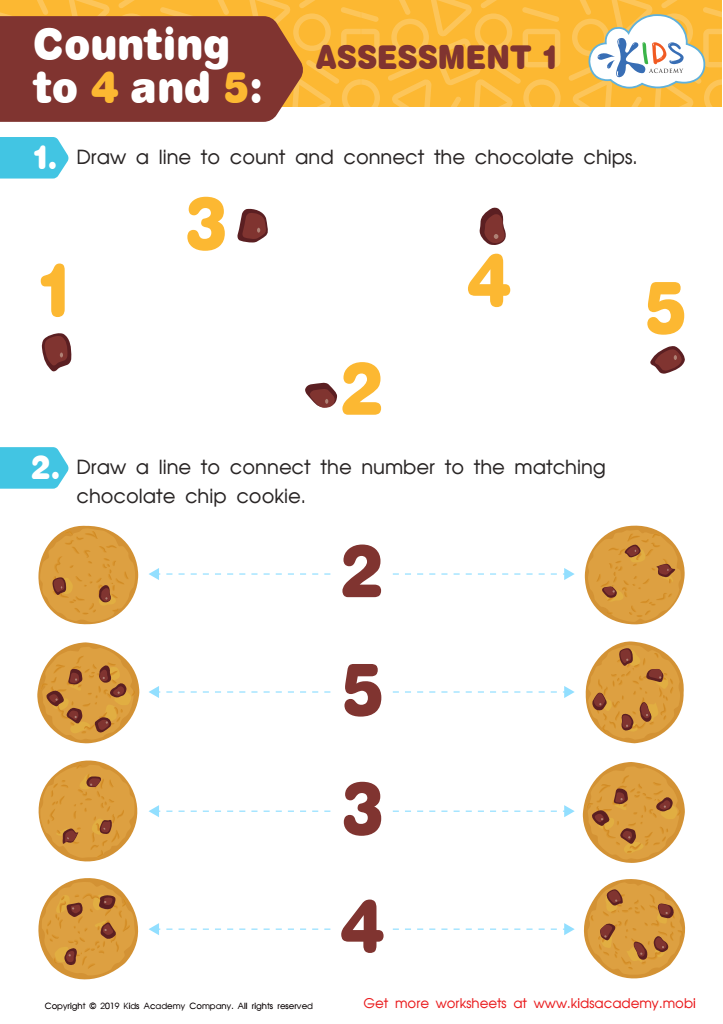

Counting to 4 and 5: Assessment 1 Worksheet
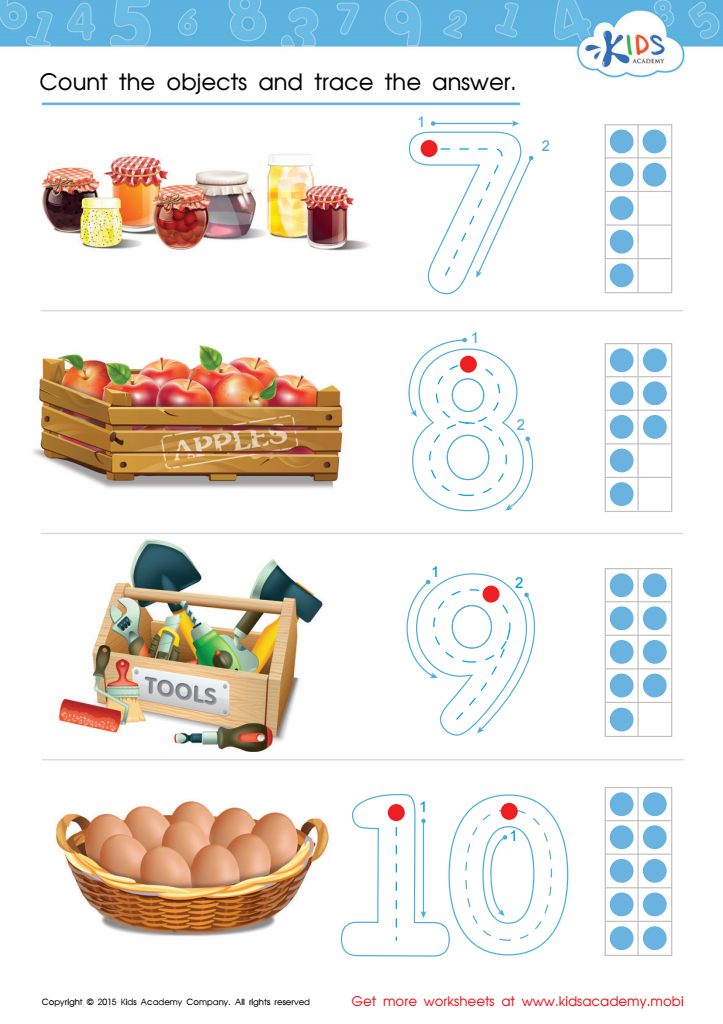

Count and Trace 7 – 10 Worksheet
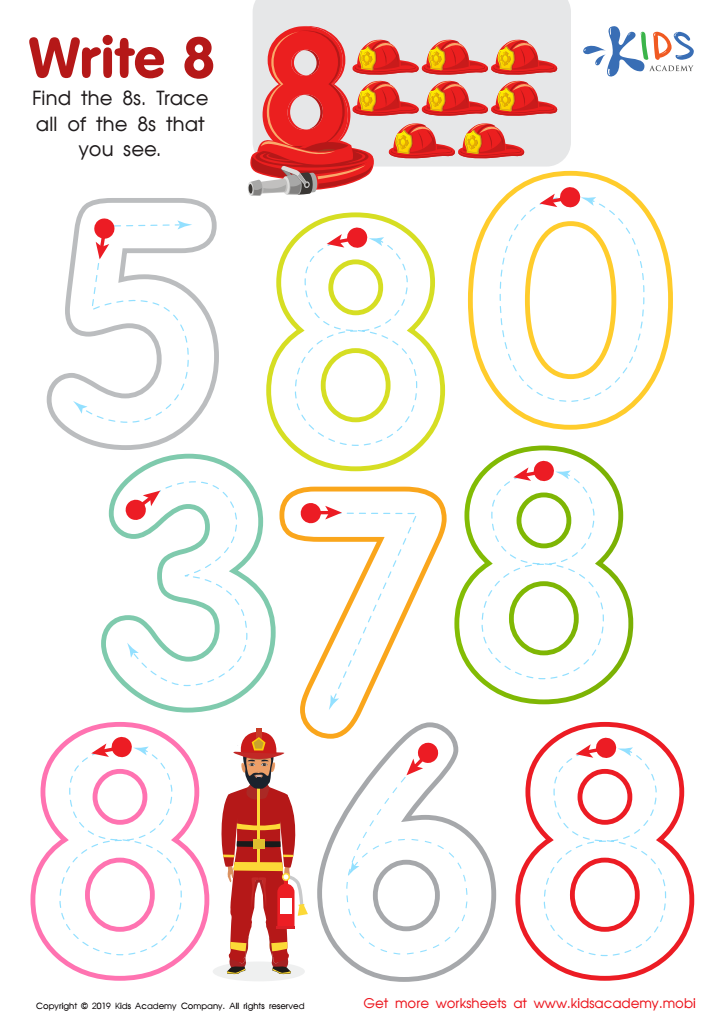

Write 8 Worksheet
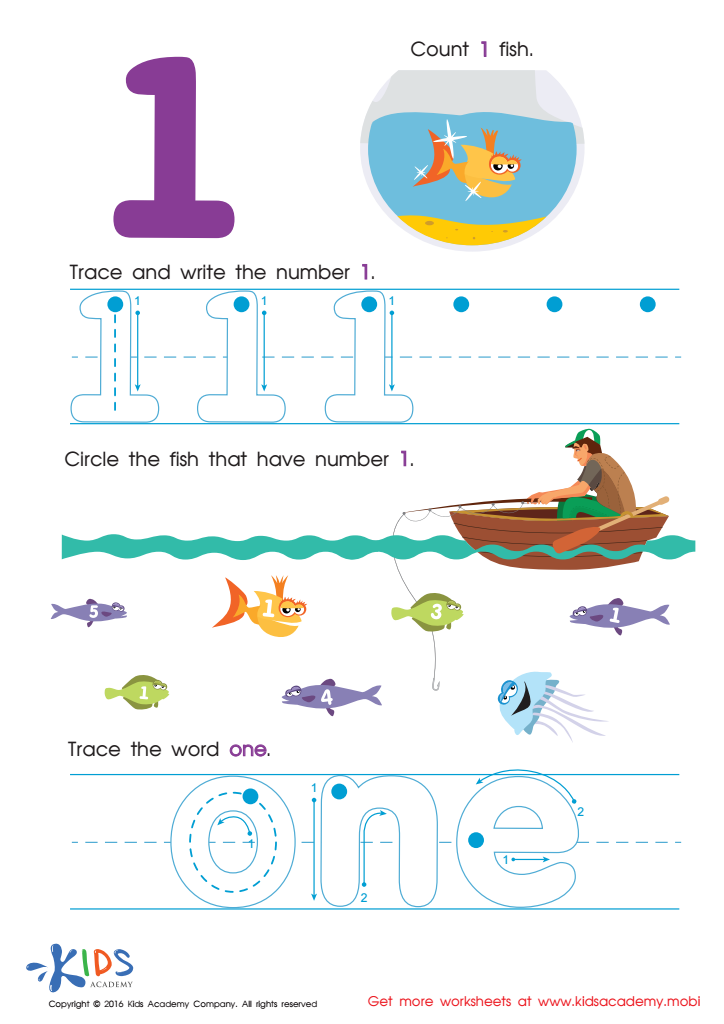

Learning to Write 1 Worksheet
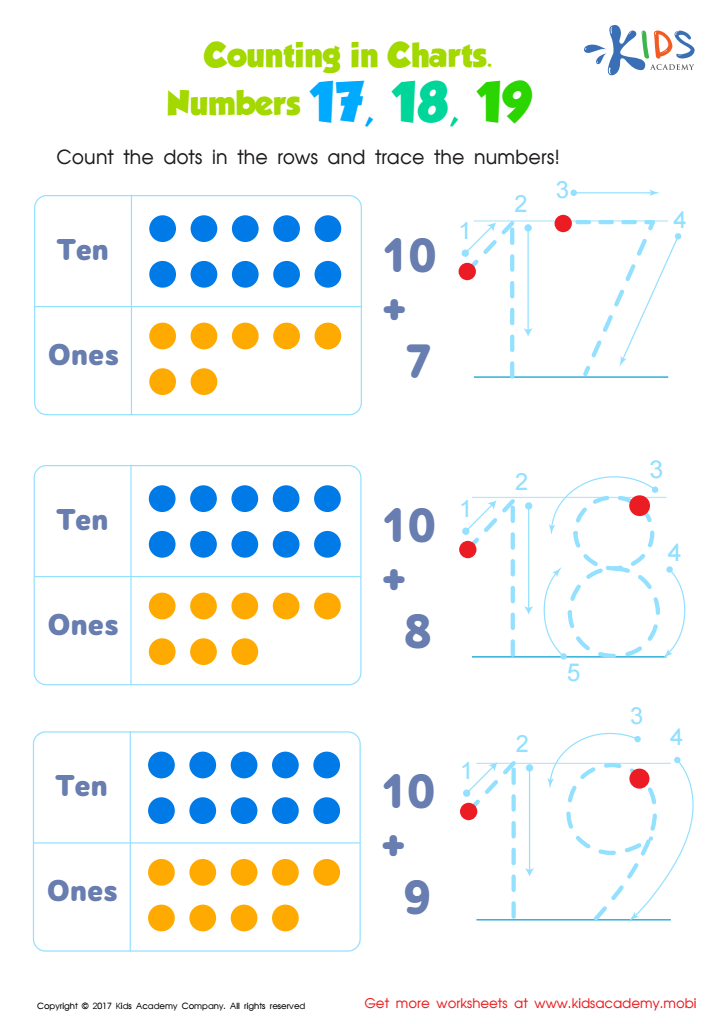

Kindergarten Number Tracing: Counting in Charts Worksheet
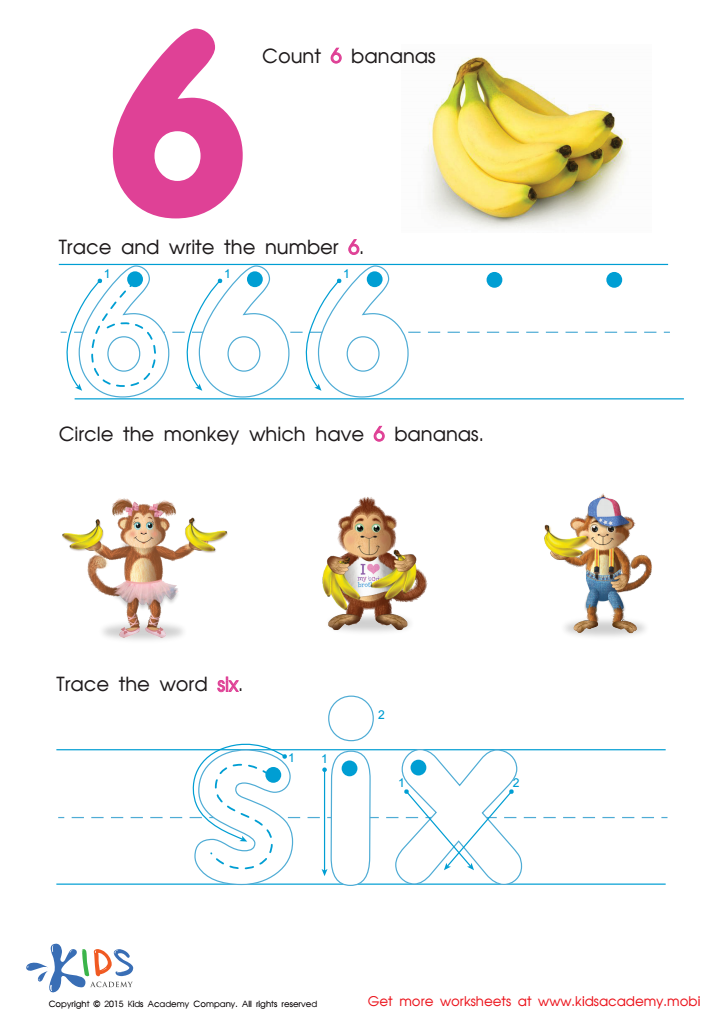

Tracing And Writing Number 6 Worksheet
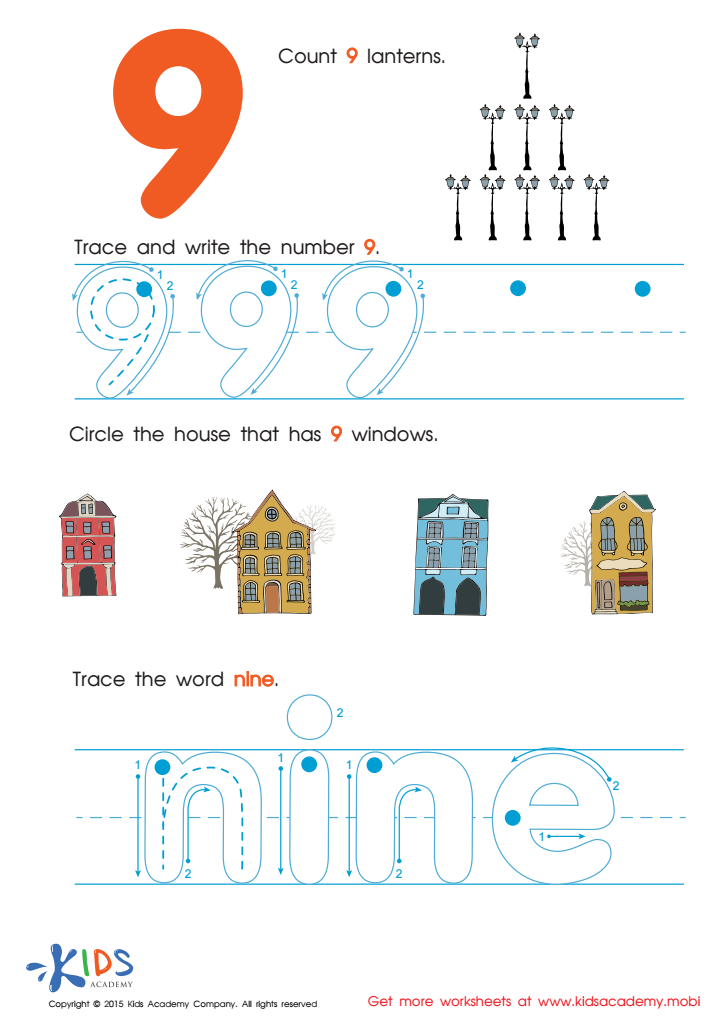

Tracing And Learning to Write Number 9 Worksheet
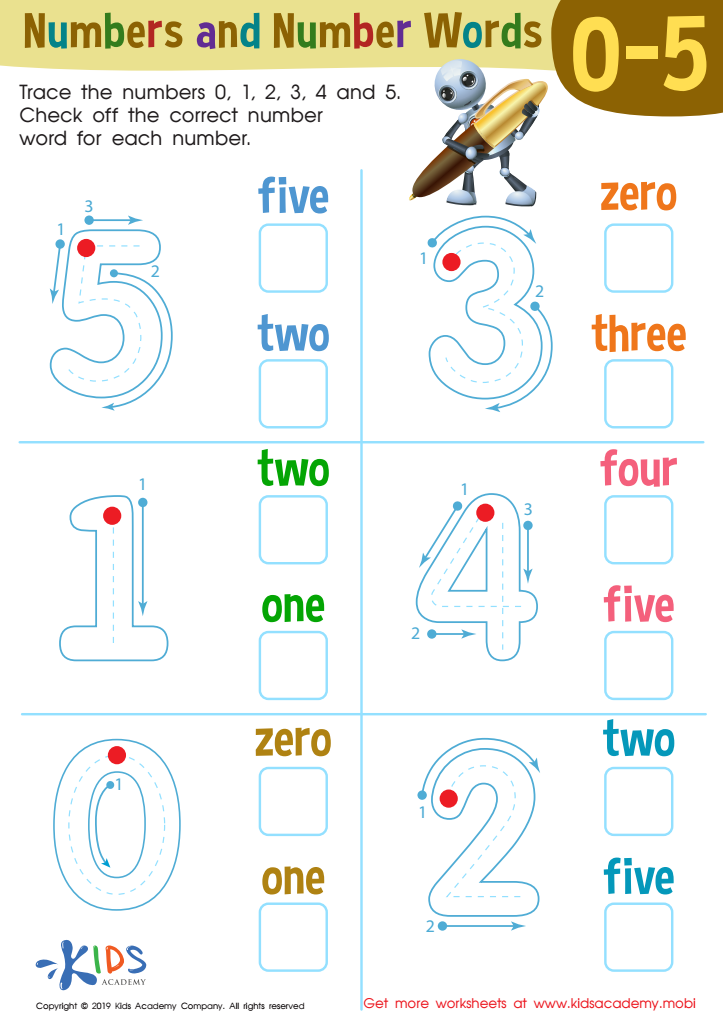

Numbers and Number Words Worksheet
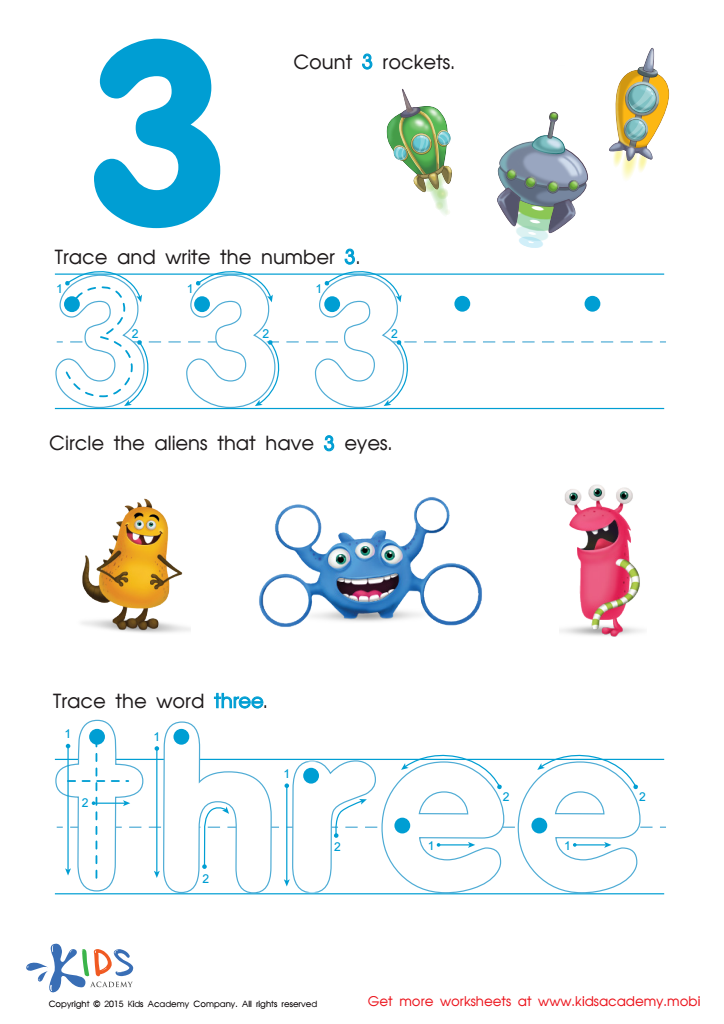

Learning Number Three Worksheet
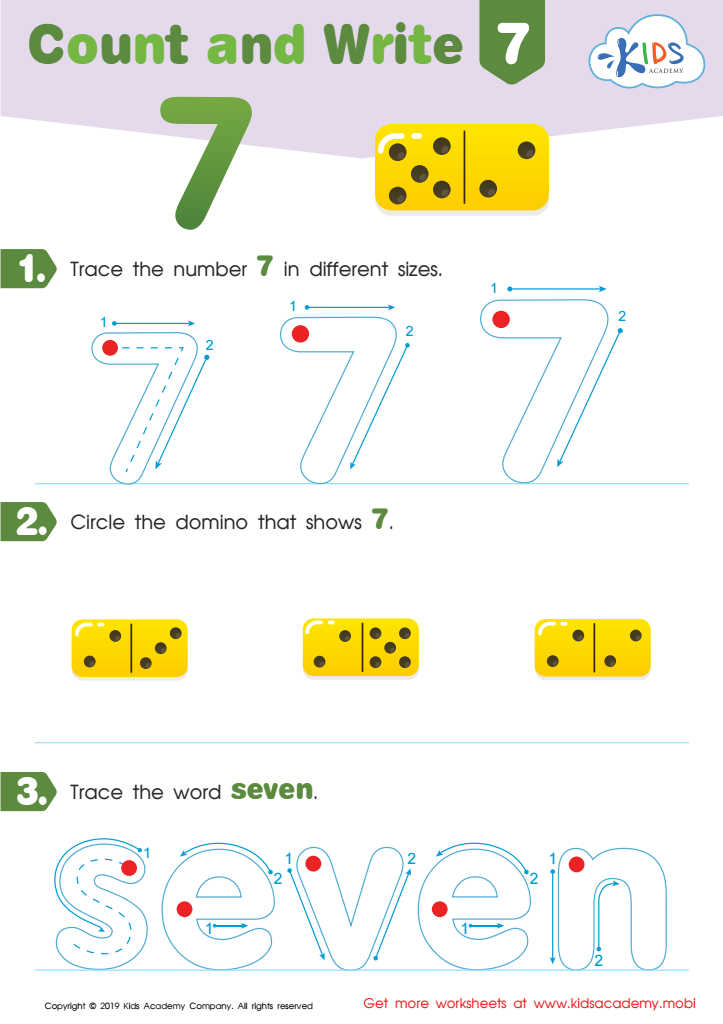

Count and Write 7 Worksheet
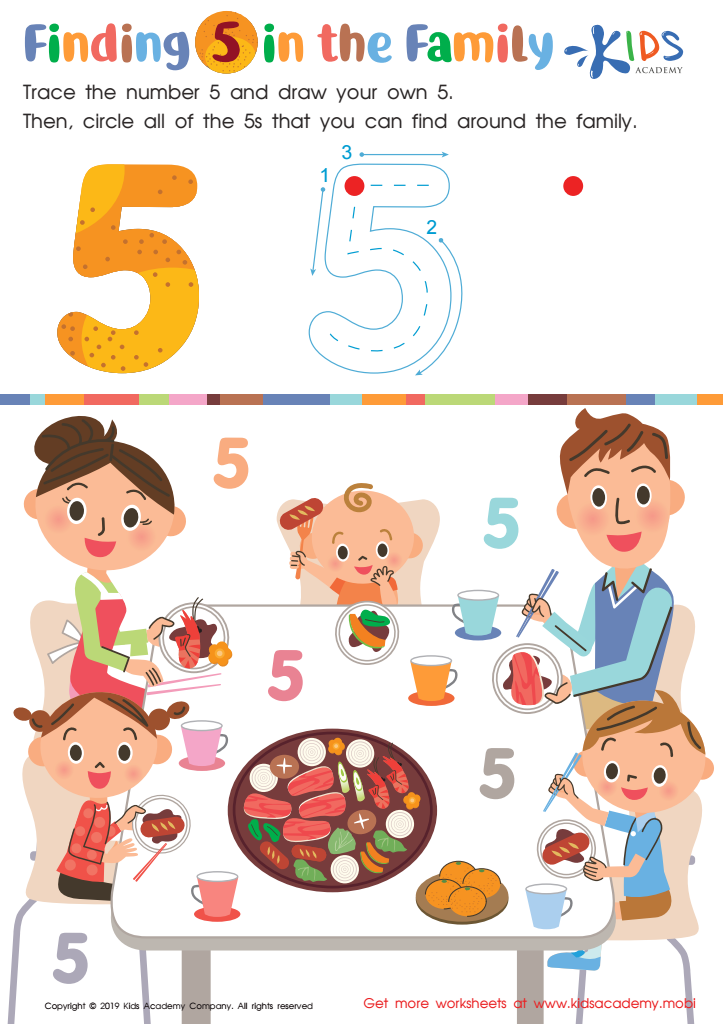

Finding 5 in the Family Worksheet
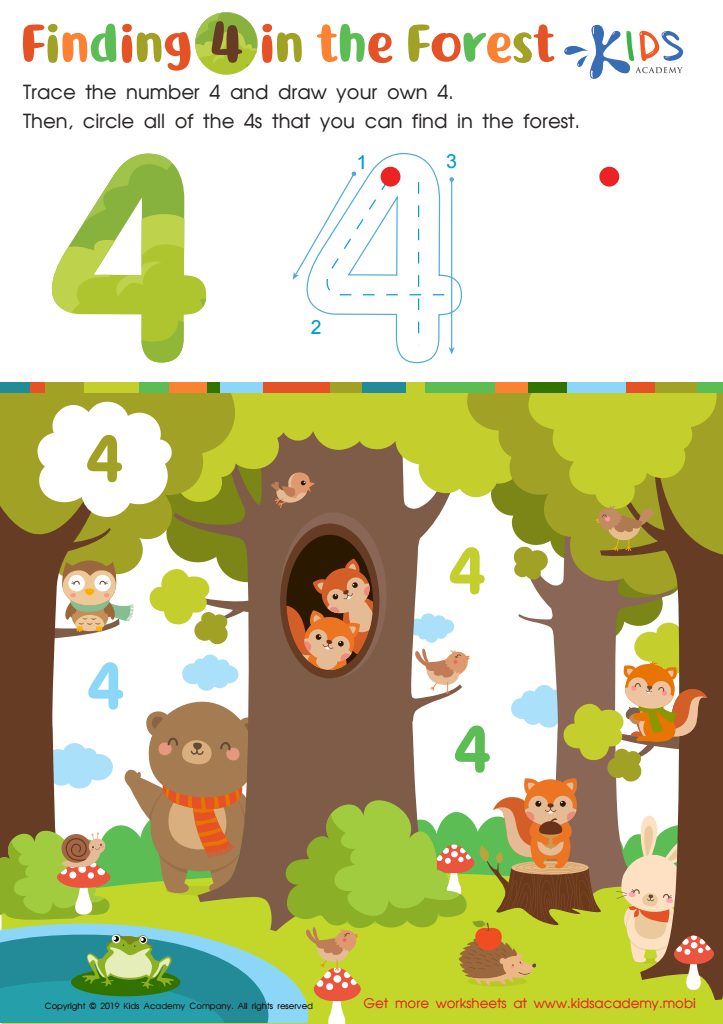

Finding 4 in the Forest Worksheet
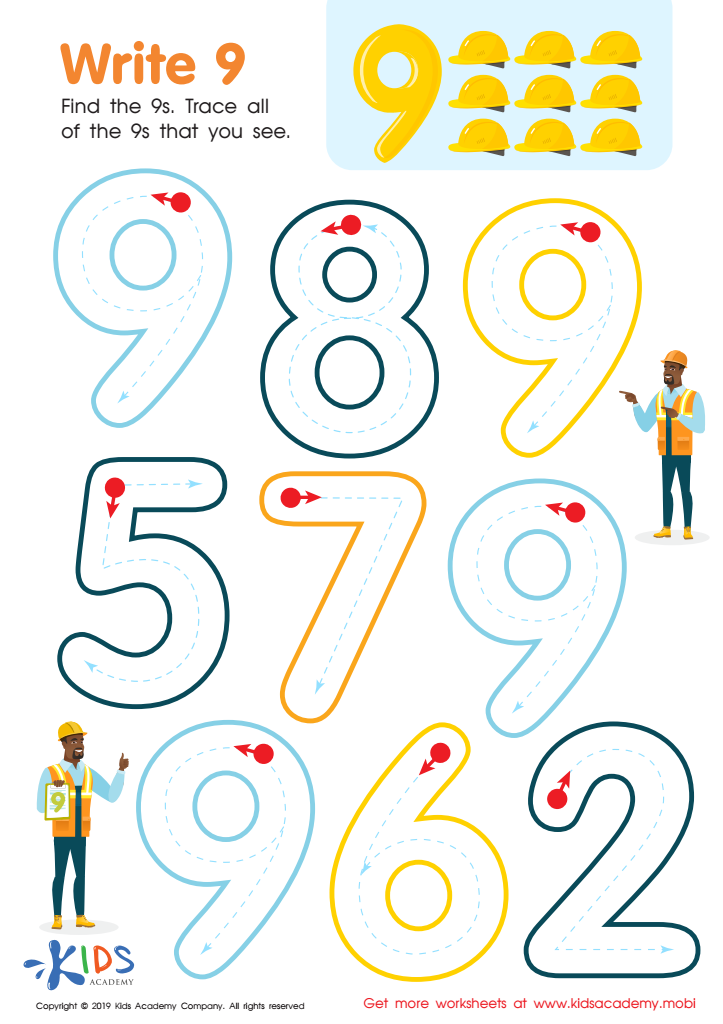

Write 9 Worksheet
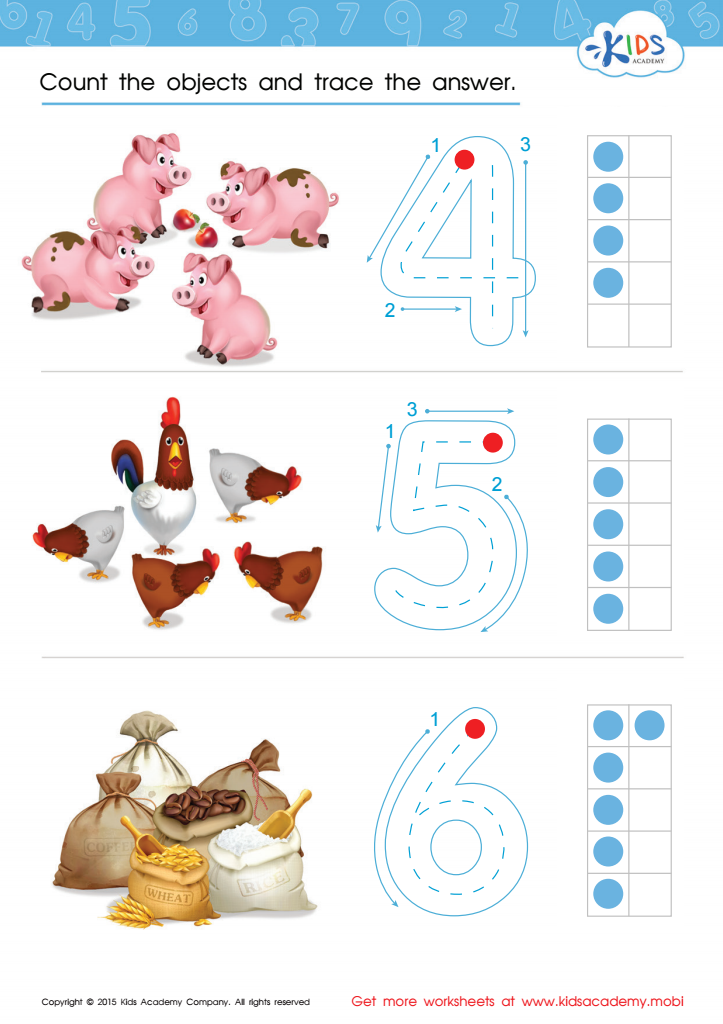

Count and Trace 4 – 6 Worksheet
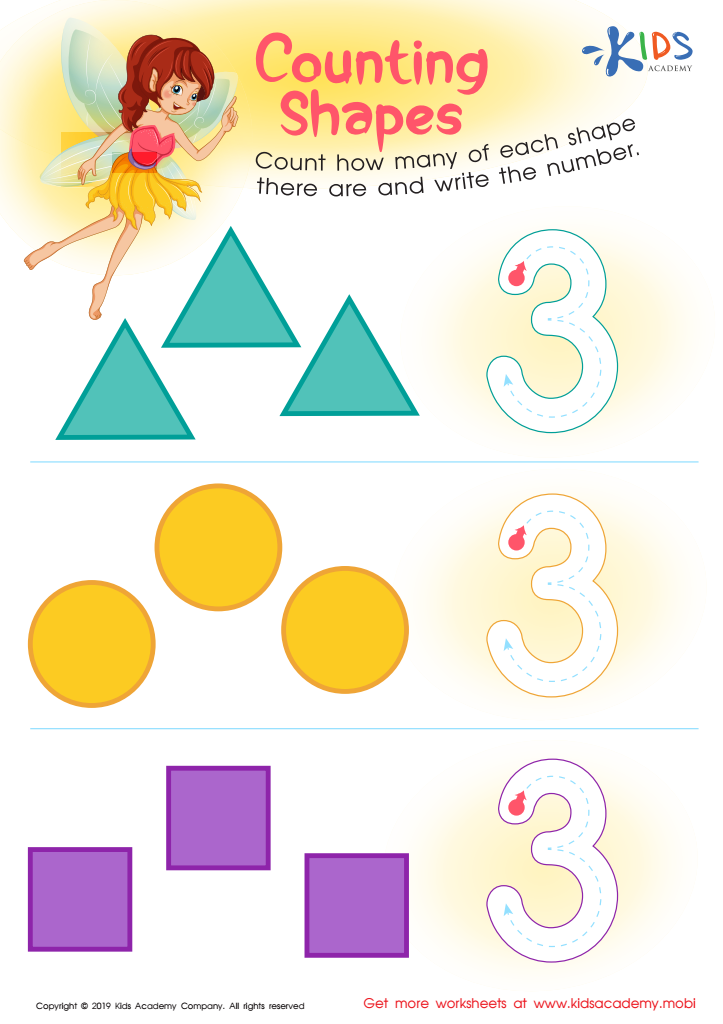

Counting Shapes Worksheet
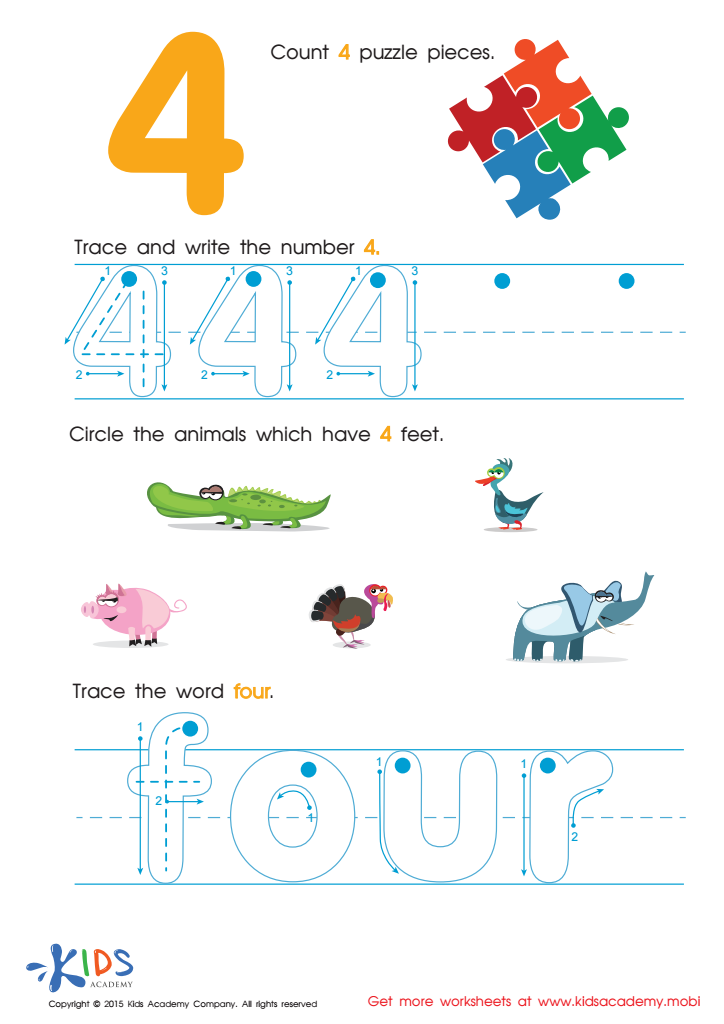

Teaching Children to Write Number 4 Worksheet
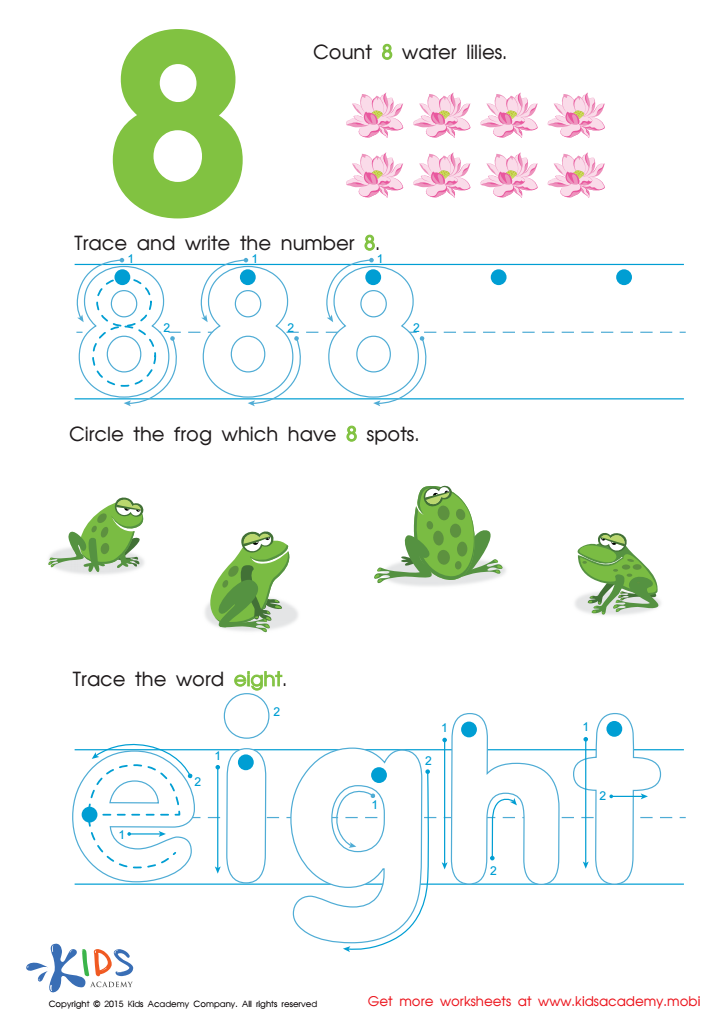

Learn Number 8 Easily Worksheet
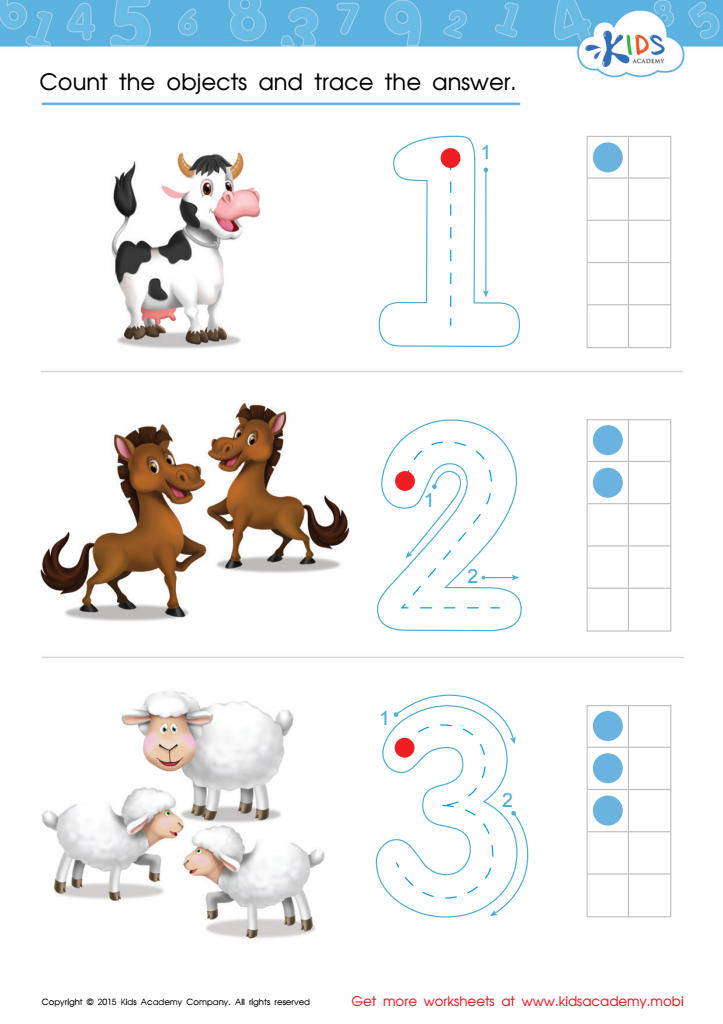

Count and Trace 1 – 3 Worksheet
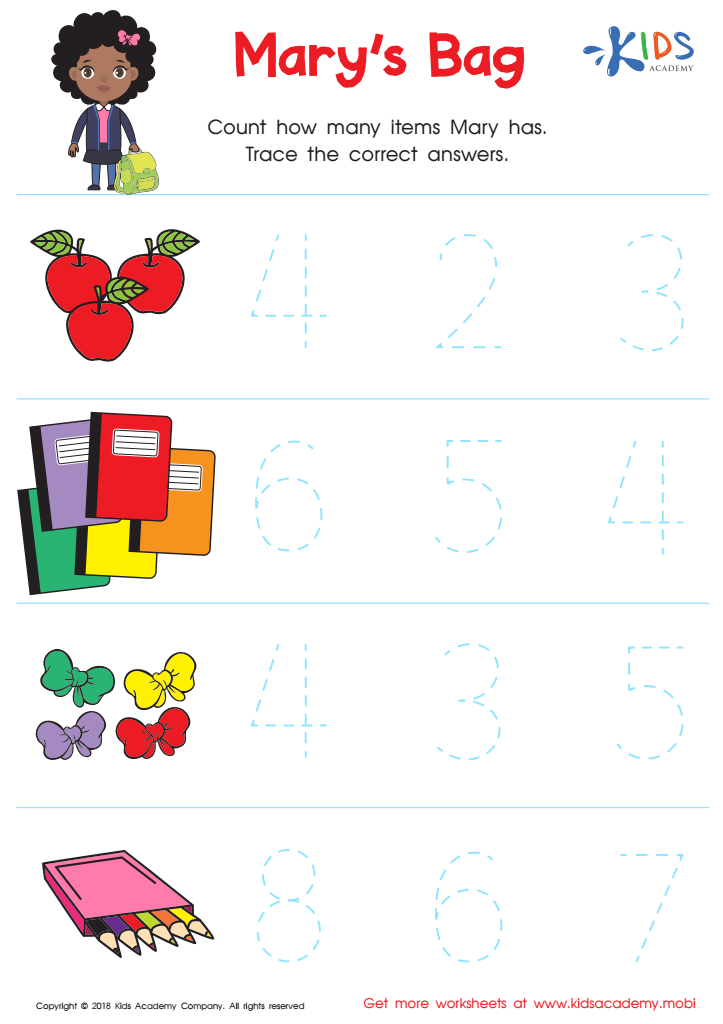

Kindergarten Number Tracing: Mary's Bag Worksheet
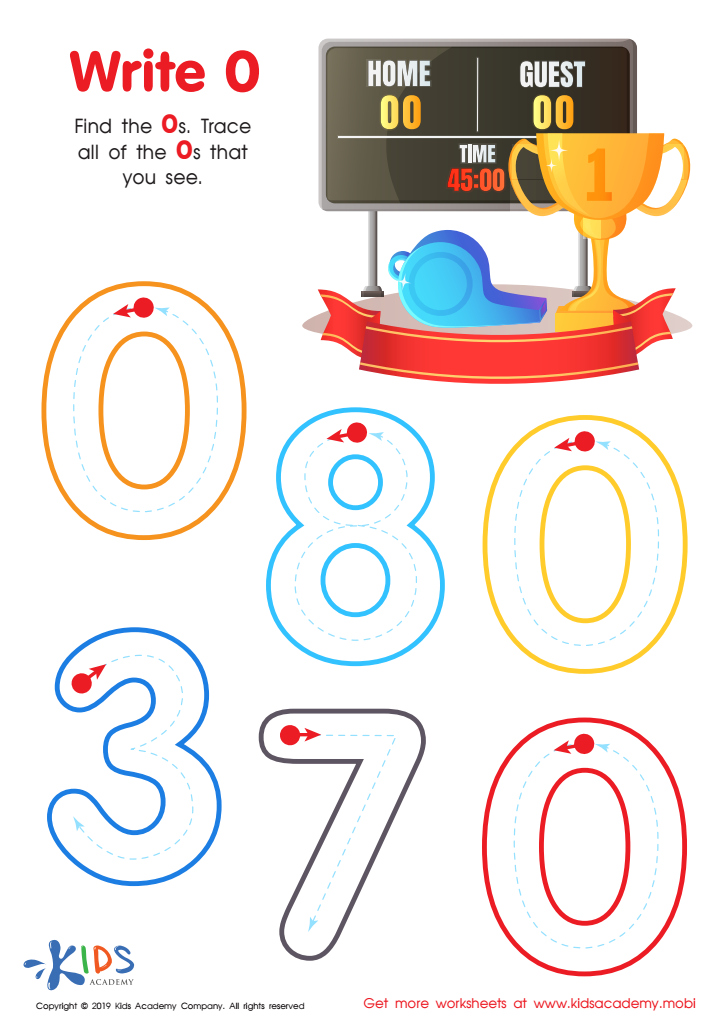

Write 0 Worksheet
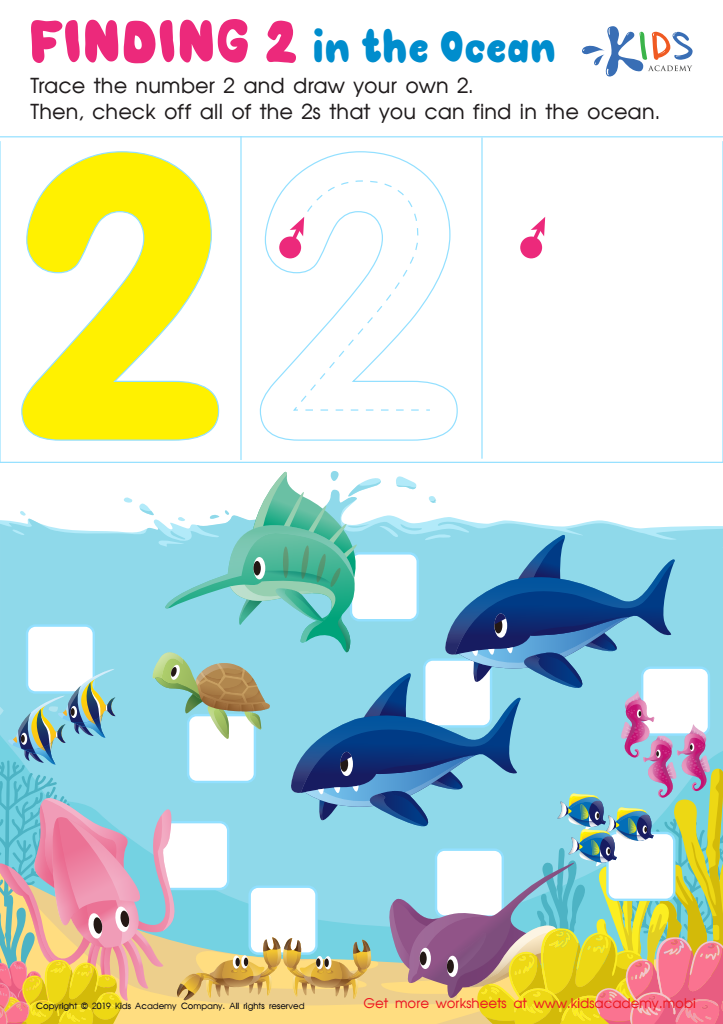

Finding 2: In the Ocean Worksheet
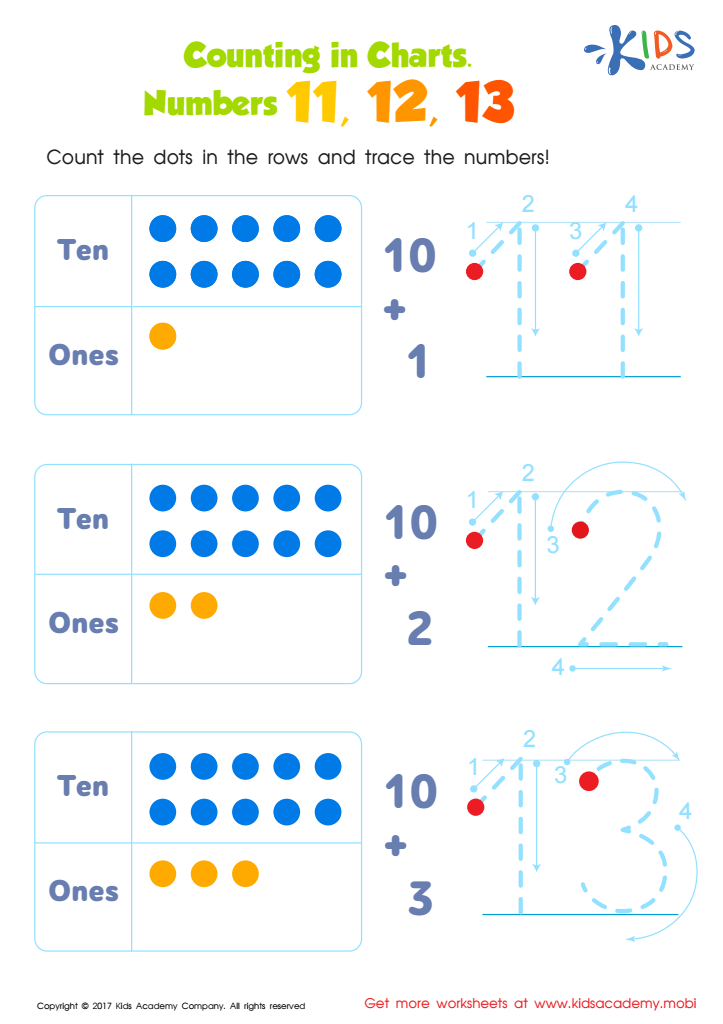

Number Tracing Worksheet For Kindergarten
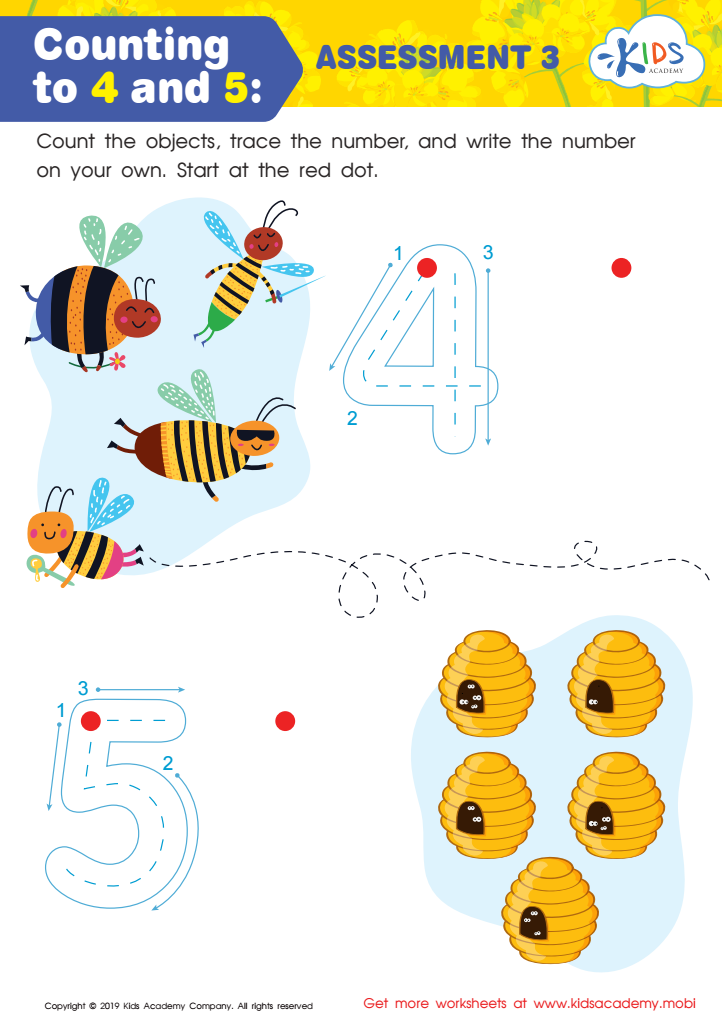

Counting to 4 and 5: Assessment 3 Worksheet
Tracing Numbers Worksheets Activities with Answers are an invaluable tool for young learners embarking on their mathematical journey. These structured activities are designed not only to introduce children to the world of numbers but also to enhance their fine motor skills, an essential component for writing. Let's explore why these worksheets are so beneficial.
Firstly, Tracing Numbers Worksheets Activities provide a guided practice that is crucial for building confidence in early learners. They offer a safe space where mistakes are part of the learning process, allowing children to practice repeatedly until they get it right. The inclusion of answers further aids in this developmental stage by offering instant feedback, enabling learners to correct their mistakes and understand the correct form of each number.
Moreover, these activities support the development of hand-eye coordination. As children trace numbers, they learn to control their hand movements in relation to what they see. This coordination is vital, not only for writing but for numerous daily activities.
Additionally, Tracing Numbers Worksheets Activities with Answers play a significant role in reinforcing number recognition, a foundational skill in mathematics. Through repetitive tracing, children become familiar with the shape and structure of numbers, making it easier for them to remember and identify them in different contexts.
These worksheets also introduce learners to the concept of following instructions and working independently. The structured nature of these activities, paired with clear answers, allows children to work at their own pace, fostering a sense of autonomy and responsibility for their learning.
Furthermore, Tracing Numbers Worksheets Activities with Answers lay the groundwork for more complex mathematical concepts. By mastering the basics of numbers through tracing, children are better prepared to tackle counting, addition, subtraction, and beyond.
In summary, Tracing Numbers Worksheets Activities with Answers are a powerful learning tool. They not only support the development of fine motor skills and hand-eye coordination but also play a crucial role in teaching number recognition, following instructions, and preparing young learners for future mathematical challenges.
 Assign to My Students
Assign to My Students
